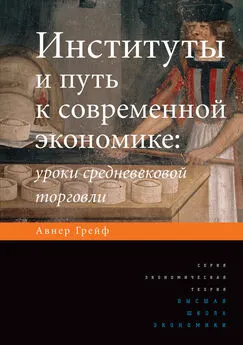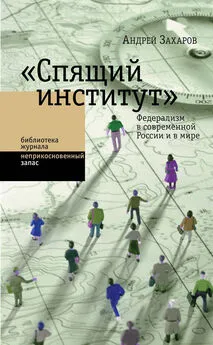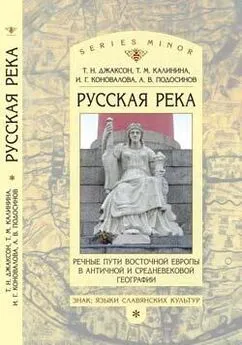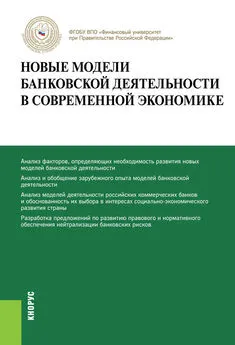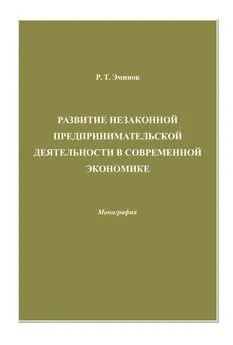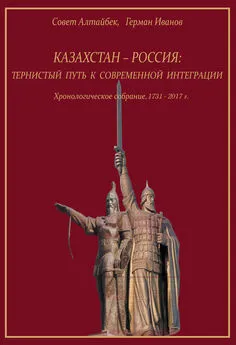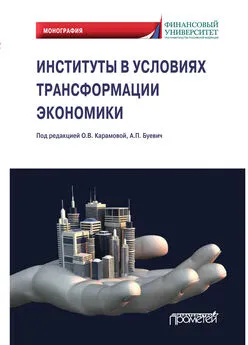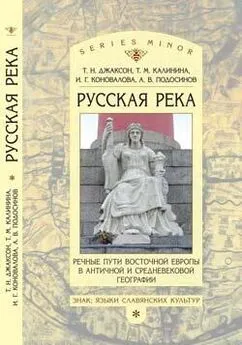Авнер Грейф - Институты и путь к современной экономике. Уроки средневековой торговли
- Название:Институты и путь к современной экономике. Уроки средневековой торговли
- Автор:
- Жанр:
- Издательство:Литагент «Высшая школа экономики»1397944e-cf23-11e0-9959-47117d41cf4b
- Год:2013
- Город:Москва
- ISBN:978-5-7598-0813-8
- Рейтинг:
- Избранное:Добавить в избранное
-
Отзывы:
-
Ваша оценка:
Авнер Грейф - Институты и путь к современной экономике. Уроки средневековой торговли краткое содержание
Принято считать, что существующие различия в экономике, политике и обществе отражают влияние различных институтов. Но среди экономистов, политологов и социологов нет единого мнения о том, что представляют собой институты, какие силы влияют на их сохранение и изменение и как мы можем повлиять на институциональное развитие. Эта междисциплинарная книга предлагает понятие институтов, которое объединяет внешне противоположные направления институционального анализа в социальных науках. В ней используется единый подход к изучению происхождения и сохранения институтов, их изменения и влияния предшествующих институтов на последующие.
Достоинства этого подхода демонстрируются при помощи сравнительных исследований институтов в средневековом европейском и мусульманском мире. Этот сравнительный анализ институциональных оснований рынков и государств и их динамики также способствует пониманию функционирования современных экономик. Он показывает своеобразие европейских институтов и объясняет, как и почему они привели к возникновению современной экономики, поддерживая обезличенный обмен, эффективные государства и использование знаний.
Институты и путь к современной экономике. Уроки средневековой торговли - читать онлайн бесплатно ознакомительный отрывок
Интервал:
Закладка:
Maurer N., Sharma T. Enforcing Property Rights through Reputation: Mexico’s Early Industrialization, 1878–1913 // Journal of Economic History. 2002. Vol. 61. No. 4. P. 950–973.
McKelvey RD., Palfrey T. An Experimental Study of the Centipede Game // Econometrica. 1992. Vol. 60 (July). P 803–836.
McMillan J. Reinventing the Bazar: A Natural History of Markets. N.Y.: Norton, 2002.
McMillan J., Woodruff C. Interfirm Relationships and Informal Credit in Vietnam // Quarterly Journal of Economics. 1999. Vol. 114. No. 4. P 1285–1320.
McMillan J., Woodruff C. Private Order under Dysfunctional Public Order // Michigan Law Review. 2000. Vol. 98. P. 2421–2445.
Mead G.H. Mind, Self, and Society: From the Standpoint of a Social Behaviorist / Charles W Morris (ed.). Chicago: University of Chicago Press, 1967 [1934].
Menger C. Principles of Economics. N.Y.: New York University Press, 1871 [1976].
Meyer J.W., Rowen B. Institutionalized Organizations: Formal Structure as Myth and Ceremony / W Powell, P DiMaggio (eds). The New Institutionalism in Organizational Analysis, 41–62. Chicago: University of Chicago Press, 1991.
Michael M. The Archives of Naharay ben Nissim, Businessman and Public Figure in Eleventh Century Egypt (in Hebrew and Arabic): Ph.D. diss. Hebrew University, Jerusalem, 1965.
Milgrom P., North D.C., Weingast B.R. The Role of Institutions in the Revival of Trade: The Medieval Law Merchant, Private Judges, and the Champagne Fairs // Economics and Politics 1990. Vol. 1 (March). P 1-23.
Milgrom P., Qian Y., Roberts J. Complementarities, Momentum, and the Evolution of Modern Manufacturing // American Economic Review. 1991. Vol. 81. No. 2. P 84–88.
Milgrom P., Roberts J. Predation, Reputation, and Entry Deterrence // Journal of Economic Theory. 1982. Vol. 27. No. 2. P 280–312.
Milgrom P., Roberts J. Rationalizability, Learning, and Equilibrium in Games with Strategic Complementarities // Econometrica. 1990. Vol. 58. No. 6. P 1255–1277.
Milgrom P., Roberts J. Economics, Organization and Management. Englewood Cliffs, NJ: Prentice-Hall, 1992.
Milgrom P., Roberts J. Complementarities and Fit: Strategy, Structure, and Organizational Change in Manufacturing // Journal of Accounting and Economics. 1995. Vol. 19. No. 2–3. P 179–208.
Milgrom P., Shannon C. Monotone Comparative Statics // Econometrica. 1994. Vol. 62. No. 1. P 157–180.
Miller G.J. Managerial Dilemmas: The Political Economy of Hierarchy. Cambridge: Cambridge University Press, 1993.
Mitchell C.W. Quantitative Analysis in Economic Theory // American Economic Review. 1925. Vol. 15. No. 1. P 1-12.
Mitterauer M., Sieder R. The European Family. Oxford: Basil Blackwell, 1982.
Mokyr J. The Lever of Riches. Oxford: Oxford University Press, 1990.
Mokyr J. The Gift of Athena. Princeton, NJ: Princeton University Press, 2002.
Moore E.W. The Fairs of Medieval England. Toronto: Pontifical Institute of Medieval Studies, 1985.
Moriguchi C. Evolution of Employment Systems in the US and Japan: 1900-60. A Comparative Historical Analysis: Unpublished Manuscript. Stanford University, 1998.
Morris C. The Discovery of the Individual, 1050–1200. London: S.P.C.K. for the Church Historical Society, 1972.
Moser P. The Political Economy of Democratic Institutions. Cheltenham: Edward Elgar, 2000.
Munck G.L. Game Theory and Comparative Politics // World Politics. 2001. Vol. 53 (Jan.). P 173–204.
Munz P. Frederick Barbarossa. Ithaca, NY: Cornell University Press, 1969.
Muthoo A., Shepsle K.A. Agenda-Setting Power in Organizations with Overlapping Generations of Players: Typescript. Harvard University, 2003.
Nee V., Ingram P. Embeddedness and Beyond: Institutions, Exchange and Social Structure / M. Brinton, V. Nee (eds). The New Institutionalism in Sociology, 19–45. N.Y.: Russell Sage Foundation, 1998.
Nelson P. Advertising as Information // Journal of Political Economy. 1974. Vol. 82. No. 4. P 729–754.
Nelson R.R. The Co-evolution of Technology, Industrial Structure, and Supporting Institutions // Industrial and Corporate Change. 1994. Vol. 3. P 47–63.
Nelson R.R. Recent Evolutionary Theorizing about Economic Change // Journal of Economic Literature. 1995. Vol. 33. No. 1. P 48–90.
NelsonR.R., Winter S.G. An Evolutionary Theory of Economic Change. Cambridge, MA: Harvard University Press, 1982.
North D.C. Structure and Change in Economic History. N.Y.: Norton, 1981.
North D.C. Institutions, Institutional Change and Economic Performance. Cambridge: Cambridge University Press, 1990.
North D.C. Institutions // Journal of Economic Perspectives. 1991. Vol. 5. No. 1. P 97-112.
North D.C. Institutions and Credible Commitment // Journal of Institutional and Theoretical Economics. 1993. Vol. 149. No. 1. P 11–23.
North D.C. Understanding the Process of Institutional Change. Princeton, NJ: Princeton University Press, 2005.
North D.C., Thomas R.P. The Rise of the Western World. Cambridge: Cambridge University Press, 1973.
North D.C., Weingast B.R. Constitutions and Commitment: The Evolution of Institutions Governing Public Choice in Seventeenth-Century England // Journal of Economic History. 1989. Vol. 49. P 803–832.
Norwich J.J. History of Venice. N.Y.: Random House, 1989.
Obertus Scriba de Mercato. 1186, 1190. Cartolare (in Latin and Italian) / R. Mario Chiaudano, Morozzo Della Rocca (eds). Documenti, XI and XVI. Turin: Editrice Libraria Italiana, 1940.
Okazaki T. The Role of the Merchant Coalition in Pre-modern Japanese Economic Development: An Historical Institutional Analysis // Explorations in Economic History. 2005. Vol. 42. No. 2. P 184–201.
Okazaki T., Okuno-Fujiwara M. Evolution of Economic Systems: The Case of Japan / Y. Hayami, M. Aoki (eds). The Institutional Foundation of Economic Development in East Asia, 482–521. London: Macmillan, 1998.
Okuno-Fujiwara M., Postlewaite A. Social Norms and Random Matching Games. CARESS // Working Paper. No. 90–18. University of Pennsylvania, 1990.
Olivieri A. Serie dei Consoli del Comune di Genova. Genoa: Forni Editore Bologna. Originally published // Atti della Ligure di Storia Patria. 1861. Vol. 1. No. 1858. P 155–479.
Olson M. The Rise and Decline of Nations. New Haven: Yale University Press, 1982. Olson M. Dictatorship, Democracy, and Development // American Political Science Review. 1993. Vol. 87. No. 3. P. 567–576.
Ostrom E. Governing the Commons: The Evolution of Institutions for Collective Action. Cambridge: Cambridge University Press, 1990.
Ostrom E. A Behavioral Approach to the Rational Choice Theory of Collective Action // American Political Science Review. 1998. Vol. 92. No. 1. P. 1–22.
Otto F. et al. 1152–1158. The Deeds of Frederick Barbarossa. Translated and annotated by Charles Christopher Mierow with collaboration of Richard Emery. N.Y.: Columbia University Press, 1953.
Pagano U., Rossi M.A. Incomplete Contracts, Intellectual Property and Institutional Complementarities: Memo, University of Siena, 2002.
Pamuk S. A Monetary History of the Ottoman Empire. Cambridge: Cambridge University Press, 2000.
Parker G. The Military Revolution (1500–1800). Cambridge: Cambridge University Press, 1990.
Parsons T. The Social System. London: Routledge and Kegan Paul, 1951.
Parsons T Prologomena to a Theory of Social Institutions // American Sociological Review. 1990. Vol. 55. No. 3. P. 319–333.
Patourel J.H. Medieval Administration of the Channel Islands, 1199–1399. Oxford: Oxford University Press, 1937.
Pearce D.G. Rationalizable Strategic Behavior and the Problem of Perfection // Econometrica. 1984. Vol. 52. No. 4. P 1029–1050.
Pearce D.G. Renegotiation-Proof Equilibria: Collective Rationality and
Intertemporal Cooperation // Unpublished Manuscript. Department of Economics, Yale University, 1987.
Pearce D.G. Repeated Games: Cooperation and Rationality / Jean-Jacques Laffont (ed.). Advances in Economic Theory. Sixth World Congress. Cambridge: Cambridge University Press. 1995. Vol. 1. P 132–174.
Persson K.G. Pre-industrial Economic Growth, Social Organization, and Technological Progress in Europe. N.Y.: Blackwell, 1988.
Pertile A. Storia del Diritto Italiano dalla Caduta dell’Impero Romano alla Codificazione. 2nd ed. 2 vols. Bologna: Arnaldo Forni Editore, 1966.
Peters G. Political Institutions, Old and New / R. Goodin, H.-D. Klingemann (eds). A New Handbook of Political Science, 205–220. N.Y.: Oxford University Press, 1996.
Pierson P. Increasing Returns, Path Dependence, and the Study of Politics // American Political Science Review. 2000. Vol. 94. No. 2. P. 251–267.
Pierson P., Skocpol T. Historical Institutionalism in Contemporary Political Science/ I. Katznelson, H.V. Milner (eds). Political Science: State of the Discipline, 693–721. N.Y.: Norton, 2002.
Pirenne H. Mohammed and Charlemagne. N.Y.: Norton, 1939.
Pirenne H. A History of Europe. N.Y.: University Books, 1956.
Planitz H. Studien zur Geschichte des Deutschen Arrestprozesses, II. Kapital, der Fremdenarrest // Zeitschrift de Savigny-Stifung fuer Rechtsgeschichte (Germanistische Abteilung). 1919. Bd. 40. S. 87-198.
Platteau J.-P. Behind the Market Stage Where Real Societies Exist. Part II: The Role of Moral Norms // Journal of Development Studies. 1994. Vol. 30. No. 3. P 753–817.
Platteau J.-P. Institutions, Social Norms and Economic Development. Amsterdam: Harwood Academic Publishers, 2000.
Platteau J.P., Gaspart F. The Risk of Resource Misappropriation in Community-Driven Development // World Development. 2003. Vol. 31. No. 10. P. 1687–1703.
Platteau J.-P., Hayami Y. Resource Endowments and Agricultural Development: Africa versus Asia / M. Aoki, Y. Hayami (eds). The Institutional Foundations of East Asian Economic Development, 357–410. London: Macmillan, 1998.
Plucknett T.F.T. Legislation of Edward I. Oxford: Clarendon, 1949.
Pollock F., Maitland F.W. The History of the English Law before the Time of Edward I. 2nd ed. 2 vols. Cambridge: Cambridge University Press, 1968.
PomeranzK. The Great Divergence: China, Europe and the Making of the Modern World Economy. Princeton, NJ: Princeton University Press, 2000.
Posner R.A. Social Norms and the Law: An Economic Approach // Papers and Proceedings from the 104th Meeting of the American Economic Association. American Economic Review. 1997. Vol. 87. No. 2. P. 333–338.
Postan M.M. Medieval Trade and Finance. Cambridge: Cambridge University Press, 1973.
Pounds N.J.G. An Economic History of Medieval Europe. 2nd ed. N.Y.: Longman, 1994.
Powell R. Guns, Butter, and Anarchy // American Political Science Review. 1993. Vol. 87. No. 1. P. 115–132.
Powell R. In the Shadow of Power: States and Strategies in International Politics. Princeton, NJ: Princeton University Press, 1999.
Powell W., DiMaggio P. (eds). The New Institutionalism in Organizational Analysis. Chicago: University of Chicago Press, 1991.
Читать дальшеИнтервал:
Закладка:
